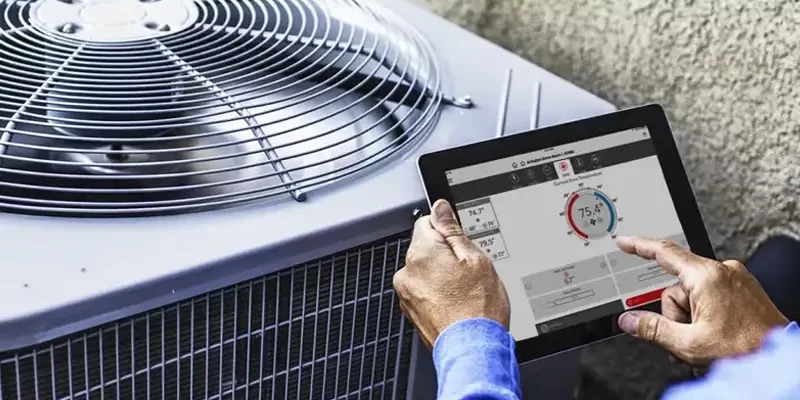The future of AI in HVAC field service is an exciting subject for many professionals in the industry. As technology rapidly evolves, the integration of Artificial Intelligence (AI) into Heating, Ventilation, and Air Conditioning (HVAC) systems is becoming increasingly prevalent. This article explores how AI is transforming HVAC field service, making systems more efficient, reliable, and sustainable.

Introduction to AI in HVAC
Artificial Intelligence has already begun to revolutionize various industries, and HVAC is no exception. The future of AI in HVAC field service holds promise for smarter, more efficient systems that require less human intervention. By harnessing AI, HVAC systems can provide better temperature control, improved energy efficiency, and predictive maintenance capabilities.
What is AI in HVAC?
AI in HVAC refers to the use of machine learning algorithms and data analytics to optimize the performance of HVAC systems. This involves gathering data from various sensors and using AI to analyze this data, allowing the system to make informed decisions about temperature regulation, energy usage, and maintenance needs.
Benefits of AI in HVAC Field Service
Improved Energy Efficiency
One of the primary benefits of AI in HVAC is improved energy efficiency. AI systems can analyze patterns in energy usage and make adjustments to reduce waste. This not only lowers energy bills but also reduces the environmental impact of HVAC systems.
Predictive Maintenance
AI enables predictive maintenance, which means issues can be identified before they become serious problems. By predicting when a component might fail, service providers can perform maintenance proactively, reducing downtime and preventing costly repairs. Learn more about predicting HVAC breakdowns with AI.
Enhanced User Comfort
AI systems can learn user preferences and adjust the environment accordingly. This results in enhanced user comfort as the system can automatically adjust settings to maintain optimal conditions.
Challenges in Implementing AI in HVAC
High Initial Costs
The initial cost of implementing AI technologies in HVAC systems can be high. However, the long-term savings in energy and maintenance costs can offset these initial expenses.
Data Privacy Concerns
With AI systems collecting vast amounts of data, there are concerns about privacy and data security. Ensuring that data is handled responsibly is crucial for gaining consumer trust.
The Role of AI in Diagnostics
AI plays a significant role in diagnostics by analyzing data and identifying potential issues in HVAC systems. This leads to faster and more accurate problem-solving, reducing the need for manual inspections. Discover how AI is used in HVAC diagnostics.
AI and Indoor Air Quality
AI can significantly improve indoor air quality by monitoring pollutants and adjusting the system to ensure clean air circulation. This is particularly important in urban areas where air quality can be poor. Learn more about AI for indoor air quality monitoring.
Future Trends in AI and HVAC
Integration with Smart Home Devices
The integration of AI with smart home devices is a growing trend. This allows users to control their HVAC systems remotely through smartphones or voice-activated assistants, providing greater convenience and control.
AI-Driven Design and Optimization
AI is being used to design and optimize HVAC systems, ensuring they are as efficient and effective as possible. This includes using AI models to enhance system performance and design. Explore more about how AI models are enhancing HVAC design and performance.
Conclusion
The future of AI in HVAC field service is bright, with numerous opportunities for innovation and improvement. As technology continues to evolve, AI will play an increasingly important role in making HVAC systems more efficient, reliable, and user-friendly. By embracing these changes, the HVAC industry can look forward to a future where systems are smarter and more sustainable.

FAQs
What is the role of AI in HVAC diagnostics?
AI helps in quickly identifying and diagnosing issues in HVAC systems, leading to faster and more accurate repairs.
How does AI improve energy efficiency in HVAC?
AI analyzes energy usage patterns and adjusts system settings to minimize waste, improving overall energy efficiency.
What are the challenges of implementing AI in HVAC?
Challenges include high initial costs and concerns about data privacy and security. However, the benefits often outweigh these challenges.
This article contains affiliate links. We may earn a commission at no extra cost to you.
